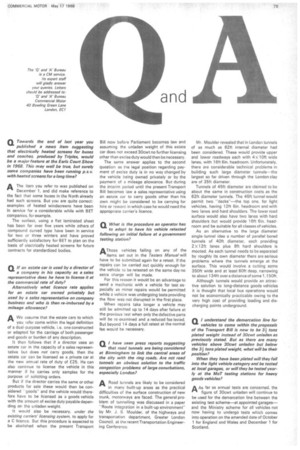If an estate car is used by a director of
Page 81

If you've noticed an error in this article please click here to report it so we can fix it.
a company in his capacity as a sales representative does he have to license it at the commercial rate of duty?
Alternatively what licence rate applies for an estate car owned privately but used by a sales representative on company business and who is then re-imbursed by a mileage allowance?
AWe assume that the estate cars to which
you refer come within the legal definition of a dual-purpose vehicle, i.e. one constructed or adapted for the carriage of both passenger and goods or burden of any description.
It then follows that if a director uses an estate car in the capacity of a sales representative but does not carry goods, then the estate car can be licensed as a private car at the new annual rate of duty of £25. He can also continue to license the vehicle in this manner if he carries only samples for the purpose of soliciting orders.
But if the director carries the same or other products for sale these would then be considered "goods" and the vehicle would therefore have to be licensed as a goods vehicle with the amount of excise duty payable depending on the unladen weight.
It would also be necessary, under the existing carriers' licensing system, to apply for a C licence. But this procedure is expected to be abolished when the present Transport Bill now before Parliament becomes law and assuming the unladen weight of this estate car does not exceed 30cwt no further licensing other than excise duty would then be necessary.
The same answer applies to the second question as the legal position regarding payment of excise duty is in no way changed by the vehicle being owned privately or by the payment of a mileage allowance. But during the interim period until the present Transport Bill becomes law a sales representative using an estate car to carry goods other than his own might be considered to be carrying for hire or reward in which case he would need the appropriate carrier's licence.




























































































































